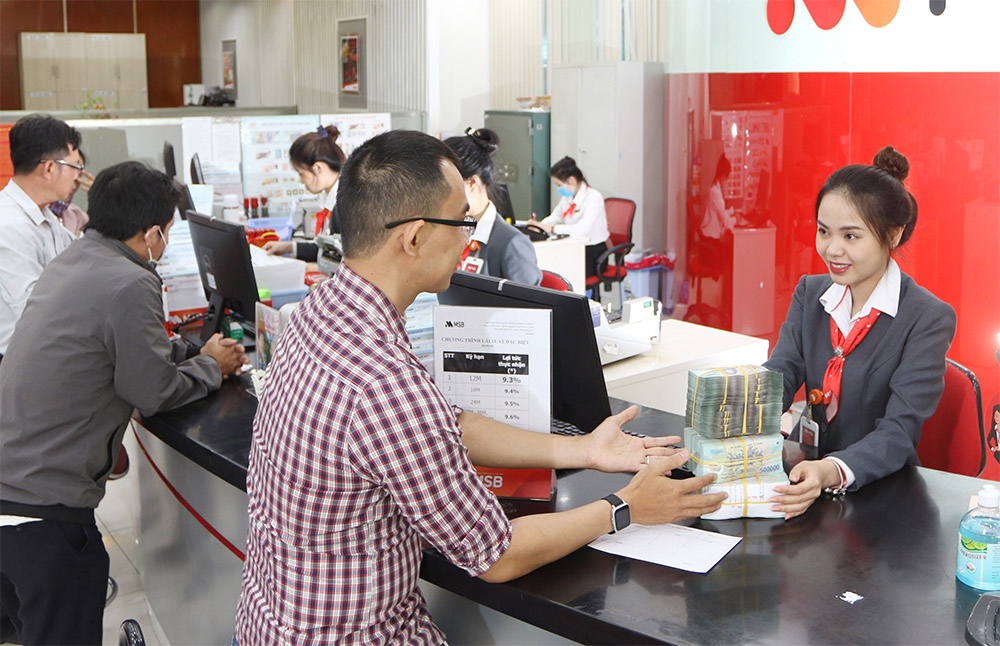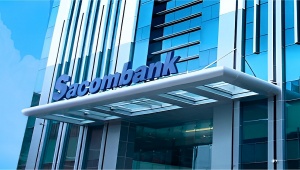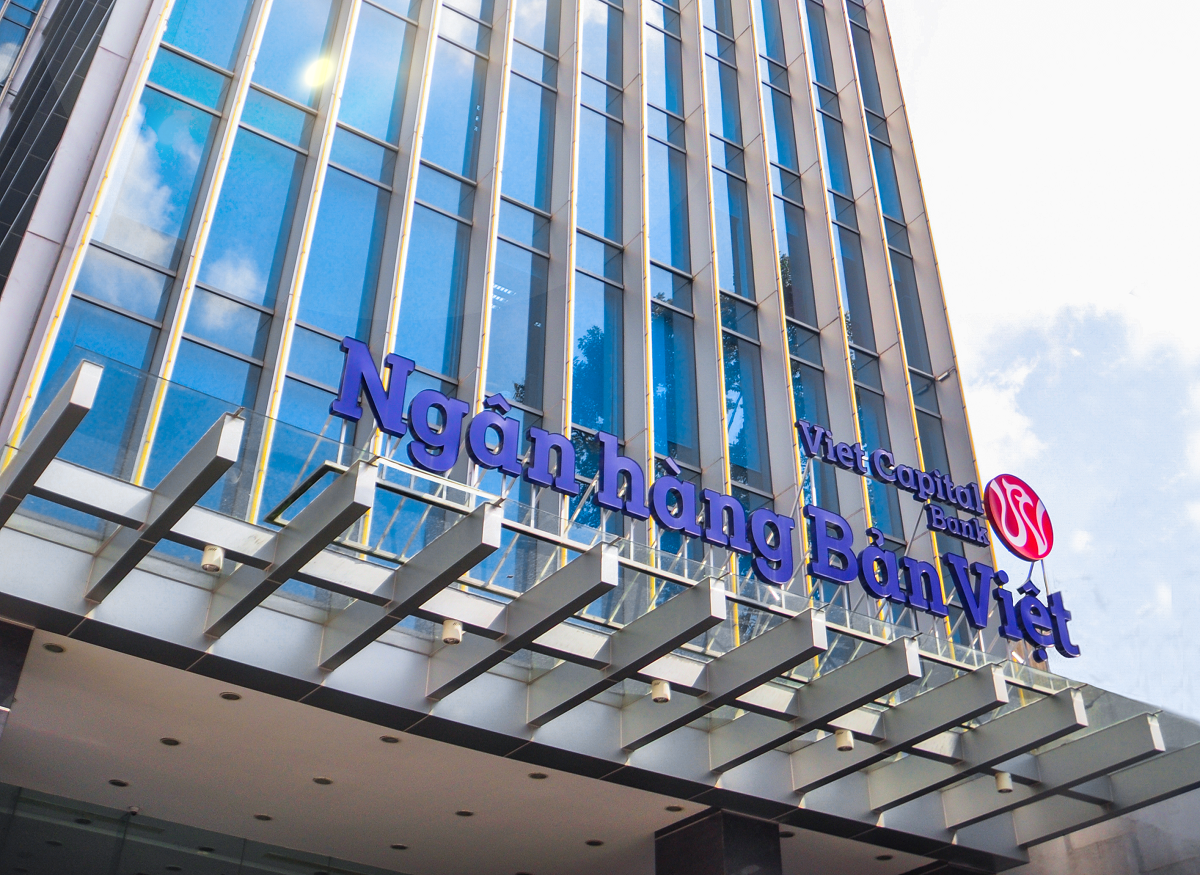Banks continuing to plan cautious growth
The State Bank of Vietnam (SBV) late in June approved Hanoi-based MSB to increase its charter capital by $240 million through a 30 per cent stock dividend issuance.
Elsewhere, ACB also reported results from its recent share issuance, paying a 15 per cent stock dividend alongside a 10 per cent cash dividend.
Upon completion, ACB’s charter capital will rise to about $1.79 billion, making it the sixth-largest bank by charter capital in the system, trailing VPBank, BIDV, Vietcombank, VietinBank, and MB.
 |
| Banks are boosting charter capital to help weather various challenges, photo Le Toan |
Earlier this month, the SBV also approved Nam A Bank’s plan to increase its charter capital to $423 million). Nam A Bank will issue shares to pay a 25 per cent dividend, increasing the charter capital by $106 million. Additionally, the bank will issue 50 million employee stock ownership shares, adding $20 million to its capital.
In another case, TPBank also plans to issue up to 440.3 million new shares to pay a 20 per cent stock dividend, increasing its charter capital by over $176 million, bringing it to a maximum of $1.06 billion. This issuance is encouraged by the SBV based on TPBank’s actual business performance and expansion plans.
MB also plans to increase its charter capital by over $343 million in 2024. This includes an increase of around $318 million through a stock dividend and an additional issuance of 62 million shares, equivalent to a capital increase of $24.8 million.
MB has already completed a private placement of 73 million shares to State Capital Investment Corporation and Viettel. Following these capital increase plans, MB’s charter capital is expected to rise to $2.47 billion, an 18 per cent increase compared to 2023.
In a significant move, the State Securities Commission approved Techcombank’s plan to double its charter capital to approximately $2.82 billion by issuing shares from retained earnings. The issuance will make Techcombank the second-largest listed bank by charter capital. VPBank currently holds the largest charter capital in the system at $3.17 billion.
Vietcombank, meanwhile, has proposed a plan to increase its charter capital using $868 million of its 2022 profits to pay a stock dividend. If approved, Vietcombank’s charter capital will exceed $3.10 billion.
Similarly, VietinBank is also planning to increase its charter capital. At the beginning of the year, chairman Tran Minh Binh requested that authorities allow the bank to retain all of its 2023 profits to increase capital. VietinBank had previously received approval to retain all of its 2022 profits for a stock dividend. The bank has proposed retaining annual profits from 2024 to 2028 to enhance financial capacity and expand credit growth.
Associate Professor Dr. Nguyen Huu Huan, head of Financial Markets at the University of Economics in Ho Chi Minh City commented, “The need for banks to increase their charter capital stems from the requirements to raise risk provisioning ratios, increase medium and long-term capital, invest in technology, and improve their capital adequacy ratio.”
He projected that 2024 will continue to be challenging for the banking sector due to rising bad debt risks, despite the extension of regulations from 2023 which allow for restructuring debt repayment terms to support struggling customers.
“Charter capital acts as a crucial buffer, providing banks with the necessary resources to tackle challenges and navigate economic instability. It also facilitates continued support for both corporate and individual clients,” Huan concluded.
According to Viet Dragon Securities Company (VDSC), by the end of 2022, a series of “black swan” events such as real estate and bond market turmoil posed significant challenges for many businesses, including Vietnam’s banks.
“However, difficulties began to subside in 2023 as policies were implemented to support the banking system,” stated a report by VDSC. “This year, we project pre-tax profit growth will accelerate, driven by recovering credit demand in real estate and business production, improving return on equity, and aiding in the revaluation process of the price-to-book ratio.”
“Risks from real estate bonds remain unresolved, but developers have 1-2 years to continue restructuring,” the brokerage stated.
 | Dragon Capital increases stake in Sacombank Dragon Capital, a prominent investment group, has bolstered its position in Saigon Thuong Tin Commercial Joint Stock Bank (Sacombank) by acquiring an additional 3.5 million shares on October 19. |
 | BVBank hits 97 per cent of annual target in Q3 surge In a remarkable turnaround, BVBank, formerly known as Viet Capital Bank, has announced its financial results for the third quarter of 2023, showcasing significant improvements over the previous quarter. Its total assets reached approximately VND84.3 trillion ($3.56 billion), a major stride towards achieving its annual target. |
 | Listing ambitions of Vietnamese banks backed by leaders Several of Vietnam’s banks are gearing up to list on the Ho Chi Minh Stock Exchange, indicating a notable growth trajectory and an opportunity for capital augmentation. |
 | Banks prepare for strategic partnerships Several Vietnamese banks are strategically positioning themselves to raise capital and court potential investors to expand their market reach. |
What the stars mean:
★ Poor ★ ★ Promising ★★★ Good ★★★★ Very good ★★★★★ Exceptional
 Tag:
Tag:
Related Contents
Latest News
More News
- Raised ties reaffirm strategic trust (February 20, 2026 | 14:06)
- Sustained growth can translate into income gains (February 19, 2026 | 18:55)
- The vision to maintain a stable monetary policy (February 19, 2026 | 08:50)
- Banking sector faces data governance hurdles in AI transition (February 19, 2026 | 08:00)
- AI leading to shift in banking roles (February 18, 2026 | 19:54)
- Digital banking enters season of transformation (February 16, 2026 | 09:00)
- IFC to grant $150 million loan package for VPBank (February 13, 2026 | 09:00)
- Nam A Bank forms position as strategic member at VIFC through three key partnerships (February 12, 2026 | 16:39)
- Banks bolster risk buffers to safeguard asset quality amid credit expansion (February 12, 2026 | 11:00)
- VNPAY and NAPAS deepen cooperation on digital payments (February 11, 2026 | 18:21)






















 Mobile Version
Mobile Version